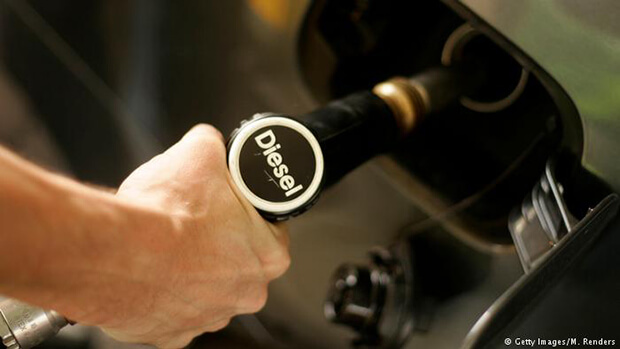Higher taxes on diesel ‘could reduce pollution and raise €500m’

An Oireachtas committee has assessed the impact of various taxes on the environment and have concluded that a higher excise on diesel would reduce pollution and raise €500m in tax revenue for the government.
Ireland currently adds 48 cents of excise duty to each litre of diesel purchased compared with 59 cents for petrol. If the excise duty was raised to the same level as petrol, it is believed that is where the extra tax revenue could come from.
This extra tax would also have the effect of driving down harmful emissions from diesel vehicles. Prof Edgar Morgenroth of Dublin City University’s Business School said many European cities were now considering diesel bans to improve air quality, while the Republic still incentivised its use by offering a lower rate of excise duty on each litre purchased.
Prof Morgenroth appeared before the Oireachtas committee to discuss a research paper which he authored in conjunction with the Economic and Social Research Institute (ESRI), which details the impact of various taxes here on the environment, including the lower rate of excise on diesel.
Prof Morgenroth’s report concluded that raising excise rates on diesel could be justified. Scientists have discovered that of emissions of nitrous oxide (NOx) and particulates (PM) have been linked to premature deaths and strokes in humans. Prof Morgenroth told the committee.
“The higher levels of emissions compared to those claimed by manufacturers, combined with growing traffic volumes, have resulted in poor air quality in many European cities,”
He said his study assessed the response of motorists to a change in the price of diesel resulting from “excise equalisation” by using estimates of the price responsiveness of diesel and taking into account the current composition of the vehicle stock.
The study found that an equalisation of excise rates of petrol and diesel to the current rate for petrol would reduce fuel consumption, drive down vehicle-related emissions and provide a revenue boost to the exchequer.
The report found that NOx emissions would be reduced by 3.8 per cent while PM emissions would be reduced by 4.1 per cent, while at the same time, tax revenue could increase by more than €500 million.
Prof Morgenroth said he appreciated that for certain drivers who bought diesel cars in good faith since 2008 could be affected by a move against diesel, especially those with regional commutes.
He also said the study analysed an immediate equalisation in duty when the Government may wish to take a more phased approach to allow motorists recalibrate gradually.
Prof Morgenroth also highlighted that 10 per cent of the Republic’s tax base came from transport taxes, which was relatively high internationally, and that the revenue from excise duty on fuel would have to be replaced as the industry shifted to electric vehicles.
The Government’s Project Ireland 2040 development plan promises to ban the purchase of all petrol and diesel vehicles from 2030.

Author

Justin Kavanagh
Justin Kavanagh is a recognised leader
in automotive intelligence and vehicle
data supply to the entire motor industry.
He has almost 20 years experience in
building systems from the ground up.
As the Managing Director of Vehicle
Management System, he understands the
need and importance of trustworthy and
reliable vehicle history and advice to
both the trade and the public.
Follow me on LinkedIn